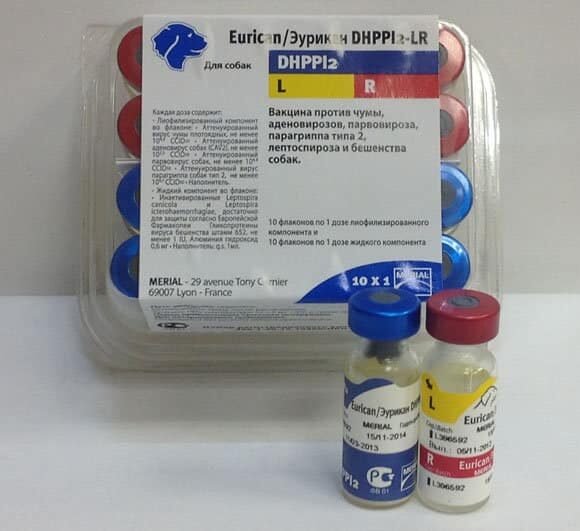Vaccination specifics
Pomeranian Spitz puppies are not vaccinated until they have been wormed. There are many preparations for this, but you should choose only those intended for small breeds. The dosage should be based on the weight of the puppy. A course of deworming lasts up to 10 days.
Vaccination recommendations for Pomeranian Spitz:
- Only healthy puppies should be vaccinated. A booster may be necessary after 2-3 weeks, depending on the company that administered the vaccine;
- After vaccination, the dog should be kept indoors for about 2 weeks. This means that the dog should not go outdoors or come into contact with other animals;
- Allergy shots may be given;
- The first vaccination is given at 45 days of age and the second at 2-3 months of age;
- It is best to have your puppy vaccinated by the breeder. When buying a puppy, ask for the vaccination booklet, which should include information on vaccinations;
- A rabies vaccination should be given at least six months of age and once a year thereafter;
- If the second vaccination fails and the vaccination has to be repeated, it must not be at the time of teething;
If you’re unsure about when and which vaccinations to give your Pomeranian, you should check with your vet. If you have any questions, you should consult your vet to ensure your pet’s health is not compromised.













